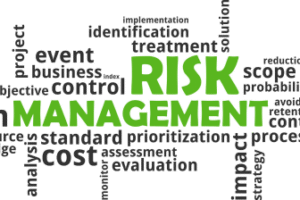
Best risk management diploma Institute
Best risk management diploma Institute
Risk management is no longer a niche topic in today’s volatile and interconnected global economy—it is a necessity. Whether in multinational corporations or start-ups, organizations face risks across financial, operational, and strategic dimensions. This has increased the demand for professionals who can foresee threats, assess their impact, and develop robust mitigation strategies.
Among the most effective paths into this field is undertaking a specialized risk management course. With many institutes offering similar programs, choosing the right one can be overwhelming. This paper explores the value of a risk management diploma and highlights the top institutes that offer industry-aligned training and practical learning.
Why Pursue a Diploma in Risk Management?
Here are key reasons why a risk management diploma can boost your career, along with the areas of expertise covered:
A diploma program focuses on developing specialized skills compared to general management courses:
- Risk Identification and Assessment – Learn how to identify potential risks related to finances, operations, and reputation.
- Quantitative & Qualitative Analysis – Apply statistical tools and analytical methods to measure risk exposure and impact.
- Regulatory Compliance – Understand local and international standards to stay aligned with changing regulations.
- Crisis Management & Business Continuity Planning – Equip organizations with strategies to deal with disruptions and sustain operations.
Compared to a degree, a diploma takes less time to complete while offering concentrated, practical knowledge. Graduates are ready to apply their expertise immediately in real-world scenarios.
Desirable Attributes of the Best Risk Management Diploma Institute
When selecting the best institute, look for these non-negotiable factors:
- Industry Recognition
A program’s value increases when employers trust the certification. Look for courses endorsed by major industry bodies or aligned with globally accepted standards. - Relevance and Curriculum Depth
The best programs go beyond textbooks. They include case studies, simulations, and hands-on projects to prepare students for the job market. - Faculty Expertise
Learning from experienced professionals helps students gain both theory and practical skills. - Placement Support
Strong industry connections open doors to internships and job offers. Placement statistics reflect an institute’s credibility. - Global Perspective
A good diploma integrates global risk management principles and compares them with local business practices, ensuring relevance in international markets
The Best Places to Study Risk Management Diplomas
Though more institutes now offer risk management programs, only a few stand out for their quality, faculty, and industry collaborations.
Global Risk Management Institute (GRMI) – India
GRMI is a pioneer in risk management education in India. Its curriculum covers enterprise, operational, credit, and market risk, giving students a comprehensive view of the field. The institute’s faculty blends academic expertise with industry experience, while partnerships enhance placement opportunities.
GRMI remains one of the top choices for students seeking a practical and industry-aligned diploma in risk management
Another noteworthy institute is the Institute of Risk Management (IRM) – UK, which offers globally recognized programs suitable for professionals targeting international roles. While it provides flexible study options for working individuals, GRMI’s focus on practical learning, industry mentorship, and strong placement record makes it stand out as the best option for students seeking comprehensive training in risk management in India
Growing Demand for Risk Management Professionals
Risk managers are needed not only in banking and finance but also in healthcare, energy, manufacturing, technology, and non-profit sectors. The rise in global disruptions such as economic crises, pandemics, and cyberattacks has increased the demand for experts capable of predicting and mitigating risks.
A recognized diploma acts as a gateway to such roles. Common job profiles include:
- Risk Analyst
- Compliance Manager
- Operational Risk Officer
- Credit Risk Specialist
- Enterprise Risk Consultant
Entry-level salaries range from ₹6 to ₹8 lakhs annually in reputable institutes. With experience, compensation rises significantly.
How to Choose the Right Institute
Before finalizing your decision, consider the following:
- Alumni Outcomes – Where are past graduates working?
- Course Modules – Do they match your career goals?
- Industry Projects – Do they provide hands-on experience
- Flexibility – Can you study part-time or online if required?
- Location & Networking – Institutes in business hubs may offer better opportunities.
Conclusion: Why GRMI Stands Out
Among the available options, GRMI emerges as one of the best choices for aspiring risk management professionals in India and abroad. Its Post Graduate Diploma in Risk Management (PGDRM) is crafted by renowned industry experts and offers globally relevant insights.
The curriculum goes beyond traditional areas like credit and operational risk, delving into modern concerns such as cyber threats, ESG risks, and AI-driven analytics. GRMI’s strong industry integration enables students to gain internships, live projects, and networking opportunities with leading companies.
The institute’s impressive placement record speaks for itself, with graduates employed at multinational corporations, banks, consulting firms, and fintech organizations.
Choosing the right institute is not just about completing a course—it’s an investment in your future. With its comprehensive curriculum, expert faculty, and robust placement support, GRMI offers a career-launching platform for professionals aiming to lead and excel in risk management.
A diploma in Risk Management from GRMI is more than certification—it’s a stepping stone toward becoming a trusted expert in managing uncertainties across industries.
FAQ's
Q1: Why should I pursue a diploma in risk management?
Ans: A diploma provides specialized, practical skills in risk identification, analysis, and compliance—helping you build a career faster than a general degree.
Q2: What makes Global Risk Management Institute (GRMI) stand out?
Ans: GRMI offers industry-aligned curriculum, expert faculty, live projects, and strong placement support, making it a top choice in India.
Q3: What kind of jobs can I get after completing a risk management diploma?
Ans: You can work as a Risk Analyst, Compliance Manager, Credit Risk Specialist, or Enterprise Risk Consultant across industries.
Q4: How much salary can I expect after completing the course?
Ans: Entry-level salaries for GRMI graduates range from ₹6–8 lakhs annually, with higher packages as you gain experience.
Q5: Which industries hire risk management professionals?
Ans: Banking, finance, healthcare, technology, energy, and even non-profits hire skilled risk managers to manage and reduce risks.
You may also like

Best Short Term Courses in IT for Freshers

What is the Best Course in Risk Management in India?


